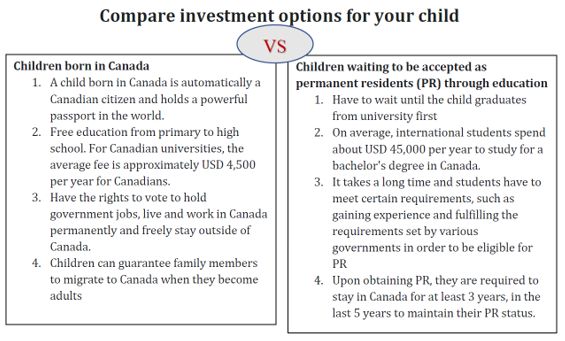In recent years, the phenomenon of "birth tourism" has captured significant attention as individuals and families seek Canadian citizenship for their children by giving birth within the country's borders. This practice has given rise to the emergence of some exploitative immigration firms that offer tailored service packages to facilitate this process. While the appeal of these services may initially be enticing for prospective parents, it is crucial to delve into the legal, social and ethical concerns that surround birth tourism. This article aims to explore the multifaceted issues associated with birth tourism and shed light on the potential implications for those who opt for these services.
Understanding Birth Tourism
Birth tourism involves individuals traveling to a foreign country for the primary purpose of giving birth there, thereby securing citizenship for their child. In Canada, birthright citizenship is granted to those born on Canadian soil. Certain immigration firms have capitalized on this opportunity by providing comprehensive service packages designed to streamline the entire process for prospective parents. These packages often include assistance with travel arrangements, accommodation at "birth hotels", and legal paperwork.
As an example, we recently came across an advertisement in Cambodia promoting such "services" (see the translation of the ad below). The consultancy firm openly markets their services by highlighting the benefits of Canadian citizenship for children born in Canada. They emphasize that Canadian citizenship provides various privileges, such as access to education, healthcare, social benefits, and the potential for family reunification in the future. They go so far as to claim that having a Canadian citizen child can pave the way for family members to immigrate to Canada when the child reaches adulthood. Such a claim, to put it mildly, is nothing short of outrageous.

Challenges of Engaging in Birth Tourism
While birth tourism services may initially appear attractive, it is essential to consider the significant consequences and risks involved:
1. Risks of Overstaying
Engaging in birth tourism can potentially lead to violations of immigration laws, particularly if individuals exceed their authorized period of stay in Canada. Although birth tourists usually enter Canada with valid visitor visas, unforeseen pregnancy complications may arise during their stay, necessitating medical treatment or an extended period in the country. In such cases, birth tourists may find themselves in a situation where their initial visa period is not sufficient to cover the required medical care and recovery time. This can result in unintentional overstaying as they prioritize their health and the well-being of their child.
Overstaying visas in Canada can lead to severe legal repercussions, including the risk of deportation and future bans on re-entry. Such ramifications can have wide-ranging and enduring effects on individuals, potentially hindering their ability to visit or reside in Canada in the future. This underscores the crucial importance of prospective parents thoroughly evaluating the potential risks and consequences before venturing down the birth tourism path. Taking these considerations seriously is paramount to making informed decisions and safeguarding one's future immigration prospects.
2. Risks of Misrepresentation
Birth tourists may misrepresent their reasons for entering Canada when applying for visitor visas or at the border. Instead of disclosing their intent to give birth in the country, they may falsely claim to be visiting for tourism or to visit friends and relatives. Misrepresentation of entry reasons carries severe consequences, potentially resulting in a five-year ban from Canada. Moreover, engaging in misrepresentation may complicate future visa or permit applications in other countries, as immigration authorities may view the previous misrepresentation in Canada as a sign of potential non-compliance with immigration regulations.
A notable case that highlights the importance of adhering to immigration regulations and maintaining transparency is Patel v. Canada (Citizenship and Immigration), 2013 FC 1224. In this case, the Federal Court deemed it reasonable for immigration authorities to consider a permanent resident inadmissible to Canada due to the individual's failure to disclose her pregnancy when she was granted permanent resident status. This case serves as a compelling reminder of the significance of honesty regarding one's circumstances and intentions throughout the entire immigration process.
3. Negative Social Perceptions
Birth tourists and their children may face stigmatization and negative perceptions from local communities and fellow Canadians. They may be perceived as individuals who exploit the system or take advantage of Canadian resources without contributing to society. Some may also see birth tourists as individuals who are "gaming" the immigration system by exploiting loopholes and bending the rules to gain citizenship for their children. This perception can generate resentment among those who have followed the established immigration pathways and processes to gain immigration status.
4. Limited access to prenatal care:
Birth tourists may encounter difficulties in obtaining timely and adequate prenatal care. This becomes especially relevant if they are unfamiliar with the Canadian healthcare system or face language barriers that hinder effective communication with medical professionals.
As birth tourism has become more prevalent in recent years, certain hospitals, like Sunnybrook Health Sciences Centre in Toronto, have implemented measures to control the number of non-resident births and prioritize service provision to residents of their own communities. For example, the hospital has announced that non-resident patients without Ontario Health Insurance Plan coverage will not receive treatment. These circumstances can present significant challenges for birth tourists, leading to potential delays in receiving essential prenatal care and increasing the risk of pregnancy complications going unnoticed or untreated.
Birth tourism is not considered the proper way to secure immigration status in Canada. While it may offer a shortcut to obtaining Canadian citizenship for the child, it bypasses the established immigration processes and can have significant legal implications.
By choosing birth tourism, individuals are essentially prioritizing the acquisition of citizenship for their child over the legitimate immigration pathways that are available to qualified candidates. Canada offers numerous immigration options for individuals who meet specific criteria, such as entrepreneurs, investors, skilled workers, and family sponsorship programs. Obtaining immigration status through established programs provides families with stability and security. It offers a clear pathway for individuals and their families to establish themselves in Canada, knowing that they have the legal right to live, work, and study in the country. This stability allows families to plan for the future, pursue education, build careers, and enjoy the benefits of Canadian society.
Considering the above, it is highly recommended that prospective parents seek the expert guidance and assistance of qualified immigration lawyers when securing Canadian immigration status for their children. At Harvey Law Group, we boast more than three decades of experience in Canadian immigration matters, enabling us to offer precise and current information on immigration regulations, expertly navigate the legal process, and ensure strict compliance with the law throughout the immigration journey. By seeking consultation from our seasoned professionals, prospective parents can make well-informed decisions and pursue their immigration goals with confidence and peace of mind.
If you are interested in learning more, please contact your local HLG office here for more details. Our team of lawyers would be pleased to offer you a complimentary consultation call to delve deeper into the details of the SUV program.
Founded in 1992, Harvey Law Group (HLG) is a leading multinational law firm with offices across Asia, North and South America, Europe, and Africa to cater to your specific needs for immigration and beyond.
The content of this article is intended to provide a general guide to the subject matter. Specialist advice should be sought about your specific circumstances.

